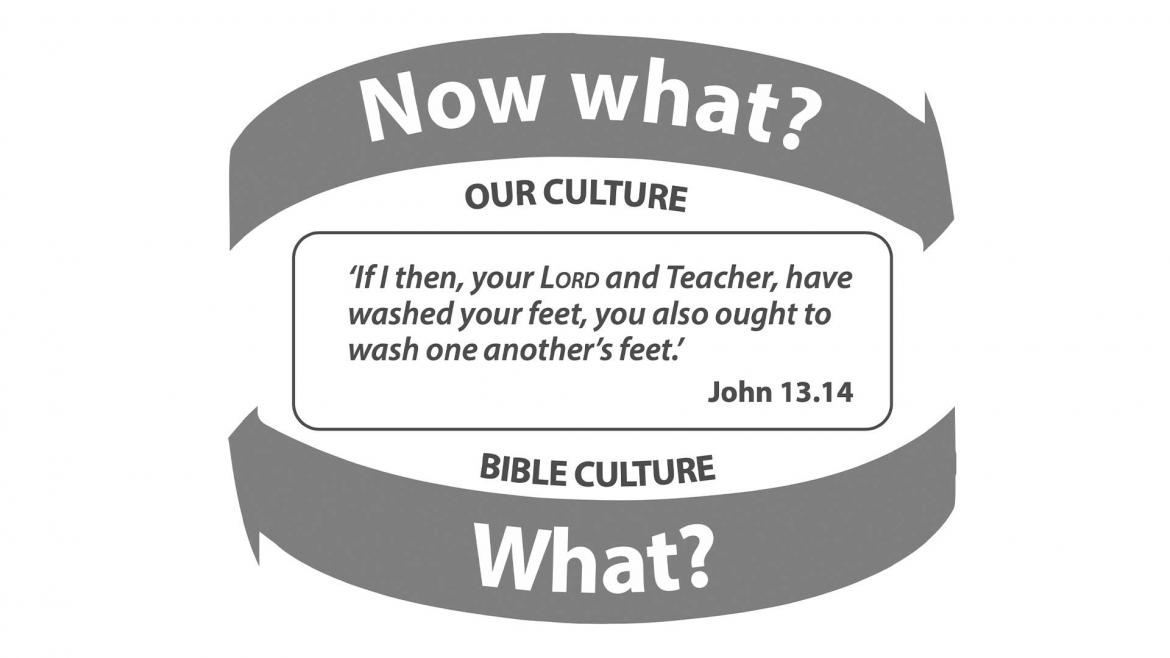Session 1: Lesson 4 - The Bible needs Interpreting
How do we begin to interpret and understand the Bible?
As you come to this session, take a moment to pause, to breathe and ask God to be with you.
Watch
Read
John 13.1–9
1Now before the Feast of the Passover, when Jesus knew that his hour had come to depart out of this world to the Father, having loved his own who were in the world, he loved them to the end. 2During supper, when the devil had already put it into the heart of Judas Iscariot, Simon's son, to betray him, 3Jesus, knowing that the Father had given all things into his hands, and that he had come from God and was going back to God, 4rose from supper. He laid aside his outer garments, and taking a towel, tied it round his waist. 5Then he poured water into a basin and began to wash the disciples' feet and to wipe them with the towel that was wrapped round him. 6He came to Simon Peter, who said to him, “Lord, do you wash my feet?” 7Jesus answered him, “What I am doing you do not understand now, but afterwards you will understand.” 8Peter said to him, “You shall never wash my feet.” Jesus answered him, “If I do not wash you, you have no share with me.” 9Simon Peter said to him, “Lord, not my feet only but also my hands and my head!”
Review
Interpreting the Bible well is key to understanding its relevance today. Remind yourself of the two questions we should ask of any passage.
What? What did this passage mean ...
in its original context?
Now what? What does the passage mean ...
for our lives today?


Using the ‘What’ and ‘Now what’ approach, consider how we might interpret Jesus’ words about foot washing today. Click the box below to find out more about the original context.
In the first century, foot washing was an act of hospitality carried out by a servant or slave when a traveller with dusty feet entered a home and before a communal meal. When Jesus washed the feet of his disciples, it was a shocking moment of humility and servanthood.
Now what – can you think of a modern day equivalent? Click the box for an example.
Perhaps the CEO washing the cars of his employees?
Romans 16.16 says we should ‘Greet one another with a holy kiss.’ Apply the ‘What’ and ‘Now what’ approach to this verse. If you need to know more about the original context, click below.
It was a common custom for people to kiss when meeting or parting to display love and affection. A holy kiss is a non-sexual greeting expressing brotherly love and unity. It was especially significant for a new believer to feel welcomed into a faith community. Even more so if the greeting was between a Gentile believer and a Jewish Christian, it was evidence of full acceptance.
Now what? Can you think of a modern day equivalent?
Reflect

The story of Jesus washing the feet of the disciples (John 13.14), implies that we should serve others with humility and hospitality.
Consider how you can practise hospitality, warmth and welcome with people you meet with this week.
Lord, thank you for the Bible. Please help me understand its relevance for us today and help me follow you by doing what you did for others. Amen.
 Loading
Loading
Next up:
Session 1: Lesson 5 - Are Bible texts and translations reliable?
Up next
In this session we ask whether we can trust the Bible?
Save your progress
- Pick up where you left off
Create a free account Already got an account? Log in now
Purchase the course
- Pick up where you left off
- Unlock sessions 2-8
Buy the course Already purchased the course? Log in now

